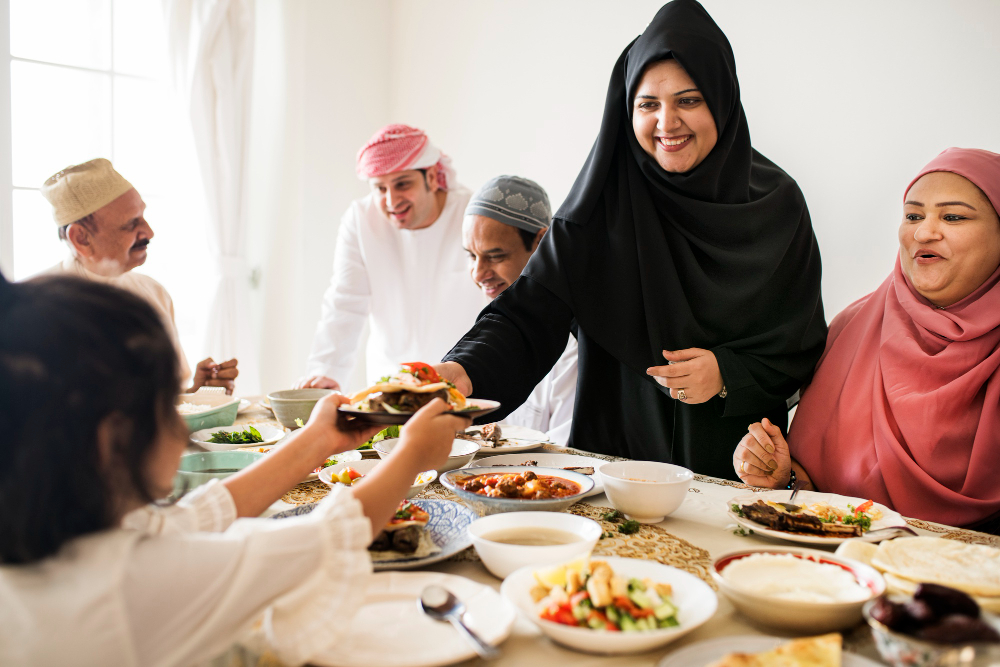Ramadan is a holy month of fasting and prayer observed by Muslims worldwide. It is a significant period in the Islamic calendar and is celebrated with great enthusiasm in many countries, including Oman. During Ramadan in Oman, Muslims abstain from food and drink from dawn until sunset, and the month is a time for spiritual reflection, charity, and community. If you are planning to visit Oman during Ramadan, it is essential to understand the rules and etiquette surrounding this religious observance.
This guide will provide you with all the information you need to know to make the most of your trip to Oman during Ramadan, including the best time to visit, what to pack, where to stay, and how to behave respectfully during this holy month. Whether you are a Muslim or non-Muslim, this guide is a valuable resource for anyone traveling to Oman during Ramadan.

Ramadan is a deeply significant time of year in Oman, with the vast majority of the population observing the holy month.
During Ramadan, Muslims in Oman fast from dawn to dusk, and the focus is on prayer, self-reflection, and acts of charity. It is a time for spiritual renewal and a chance to strengthen one’s connection with God.
The month of Ramadan also has a significant impact on daily life in Oman, with many businesses and restaurants operating during special hours, and traditional meals and activities taking place throughout the month.
What’s Ramadan like in Oman?
During this month, many Omanis come together to break their fast at iftar gatherings, where families, friends, and neighbors share food and company. The month of Ramadan is also a time for increased prayer and reading of the Quran, as Muslims seek to deepen their connection with God.
In Oman, Ramadan is a time for unity and togetherness, as the community comes together to celebrate the blessings of the holy month. Moreover, many traditions and customs are observed during Ramadan, from the nightly Iftar meal, where fast is broken, to the Taraweeh prayer, performed each evening during the month. Special events and activities, such as traditional markets or Ramadan tents, offer visitors a chance to experience the country’s culture and customs.
Fasting rules and traditions in Oman
Fasting during Ramadan in Oman is an important religious tradition and is observed by Muslims all over the world. According to the Academy of Nutrition and Dietetics, fasting during Ramadan means abstinence from all food or drink, including water and chewing gum, from dawn to sunset. It is recommended that before sunrise, Muslims eat a pre-fast meal known as suhur. This meal often resembles breakfast, but in some cultures, it may include more dinner-like foods.
In Oman, it is important to follow certain rules and etiquette during Ramadan. It is recommended to get into the charitable spirit by donating to Ramadan camps, care packages, and other charity organizations. It is also recommended to fast along with Muslim colleagues for a day or two and break the fast together on a video app such as Zoom at the time of iftar.

It is also appropriate to abide scrupulously by Omani cultural norms and despite its sometimes superficially westernized appearance and growing tourism industry, Oman remains a deeply traditional and conservative country.
Intermittent fasting is also a popular practice in Oman. The goal of intermittent fasting is to eat anything healthy and wholesome. It is important to not indulge in energy-dense foods (high-calorie foods) during the eating window.
Finally, it’s important to use the time before sunrise and after sunset as an opportunity to rehydrate and meet the recommended water intake. It is a must to keep a water bottle close throughout the night and drink whenever possible.
Special events and activities during Ramadan
There are several special events and activities that take place during Ramadan.
Taraweeh Prayers: In the evenings during Ramadan, Muslims gather in mosques to perform Taraweeh prayers, which are extra prayers performed after the Isha prayer. These prayers are performed in congregation and can last up to two hours.
Iftar: The daily fast is broken at sunset with a meal called Iftar. Traditionally, Muslims break their fast with dates and water, as this was the practice of the Prophet Muhammad. Iftar can be a communal event, with families and friends gathering to share the meal.
Suhur: Suhur is the pre-dawn meal that Muslims eat before beginning their fast for the day. It is recommended to eat a healthy and nutritious meal to sustain throughout the day.
Zakat: Ramadan is also a time for giving to those in need. Muslims are encouraged to give Zakat, which is a form of charity, during this month. Many organizations and charities organize campaigns during Ramadan to collect donations for the less fortunate.
Quran Recitation: Ramadan is also a time for increased Quran recitation. Many Muslims aim to complete the recitation of the Quran during this month. Mosques organize Quran recitation competitions to encourage individuals to read and understand the Quran.
Night of Power: The Night of Power, also known as Laylatul Qadr, is considered the most sacred night of the year in Islam. It falls during the last 10 nights of Ramadan and is believed to be the night when the first verses of the Quran were revealed to the Prophet Muhammad.
Do remember that it is essential to be respectful of these traditions and customs when visiting Oman during Ramadan, as it is a time of great significance for the people of Oman.
Exploring Oman During Ramadan
If you’re planning to visit Oman during Ramadan and want to go sightseeing, there are a few things you should keep in mind in order to be respectful of the customs and traditions of this holy month. Here is a short guide to sightseeing during Ramadan in Oman:
- Dress modestly: It is important to dress modestly when visiting public places during Ramadan, especially when visiting mosques or other religious sites. Men should wear long pants and shirts with sleeves, while women should cover their heads and wear long, loose-fitting clothing that covers their arms and legs.
- Check the opening hours: Many businesses and tourist attractions may have reduced opening hours during Ramadan, so it’s important to check ahead before you go. Some places may also be closed completely during certain times of the day, such as during prayer times.
- Be respectful of those who are fasting: Remember that many people will be fasting during Ramadan, so it’s important to be respectful of their customs and traditions. Avoid eating, drinking, or smoking in public during the day.
- Attend iftar: If you get the chance, attend an iftar, the meal that breaks the daily fast. This is a great opportunity to experience local culture and cuisine, and to meet new people.
- Visit local markets: Visit local markets or souqs during Ramadan, as they are often filled with special Ramadan decorations and food items. This is a great opportunity to experience the local culture and traditions.
Activities to do during Ramadan in Oman
Here are some of the activities you can do during Ramadan in Oman:
- Attend iftar: Iftar is the meal that breaks the daily fast at sunset, and it is a special time of day during Ramadan. Many restaurants and hotels offer special iftar menus, and it’s a great opportunity to try traditional Omani cuisine and experience the local culture.
- Visit mosques: Ramadan is a time of increased spirituality, and visiting mosques during this time can be a humbling and rewarding experience. Many mosques offer special prayers and events during Ramadan, and it’s a great opportunity to learn more about Islam and Omani culture.
- Enjoy Ramadan decorations: Many cities and towns in Oman are decorated with beautiful lights and decorations during Ramadan, creating a festive atmosphere. Take a walk around town to enjoy the decorations and take in the sights and sounds of the season.
- Attend cultural events: Many cultural events and celebrations take place during Ramadan in Oman, such as traditional music and dance performances. Check local event listings to find out what’s happening in your area.
- Volunteer: Ramadan is a time of giving and charity, and volunteering your time is a great way to give back to the community. Many organizations and charities offer volunteer opportunities during Ramadan, such as distributing iftar meals to those in need.
Video: RAMADAN VLOG – Ramadan in Oman
Here is a video highlighting what the vlogger’s typical day is like during Ramadan. She takes viewers on a virtual tour of some beautiful mosques around Muscat, Oman. The speaker also shares some Algerian recipes that are typically eaten during Ramadan, adding a cultural aspect to the video. Throughout the video, the vlogger provides us a glimpse into her daily routine during Ramadan, showcasing her experiences and the importance of the holy month to Muslims like her.
Final Thoughts
In conclusion, Ramadan in Oman is a beautiful and meaningful experience, and visitors should take the time to understand and appreciate this important observance. By following the tips and guidelines outlined in this guide, travelers can ensure a respectful and enjoyable trip to Oman during Ramadan.
Whether you choose to join in the fasting and prayer or simply witness the cultural celebrations and traditions, Ramadan in Oman is a unique and unforgettable experience that should not be missed.
READ NEXT: Guide: Living and Working in Oman – Oman OFW